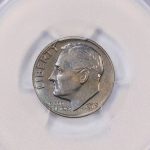September marks the beginning of spider season in the UK, which can be unsettling for homeowners, particularly those with a fear of spiders.
During autumn, spiders seek out warm and sheltered spots, often leading them into households, where they soon establish their own homes.
Pest control expert Robert Collins from MyJobQuote.co.uk has offered advice on preventing spiders from entering your home.
Much like other species, including common pets like cats, spiders like to stay away from certain scents they deem unpleasant.
Some people may be aware that peppermint oil has a strong scent that deters spiders, but a perhaps lesser-known fact is that one kitchen ingredient works in the same way.
Collins explained: “The scent of the vinegar will deter spiders and make them less likely to settle in your home. Fill a spray bottle with equal parts white vinegar and water and spritz the mixture around your home.
“It’s a good idea to spray it close to entry points such as doors and windows to prevent spiders from entering in the first place.”
The most common types of spiders that invade UK homes:
Common fox spider: Known for its speed, this spider actively pursues its prey rather than waiting in a web. It is a fast-moving hunter with an agile chase.
Green orb-weaver spider: Recognisable by its vibrant green abdomen, this small spider spins intricate, orb-shaped webs. Its bright coloration makes it stand out among other spiders.
Diving bell spider: This remarkable spider can live underwater by creating a web capsule filled with air. This air bubble allows it to breathe and lay eggs while submerged.
Giant house spider: One of the larger spider species, it constructs sheet-like webs and can move swiftly across floors at speeds of up to 20 inches per second.
Harvestman spider: Featuring a tiny body with a fused head and abdomen, this spider is distinguished by its extremely long, slender legs, which it can shed as a defence mechanism.
Zebra jumping spider: With its distinctive black and white stripes, this spider is a skilled predator that stalks and leaps to capture its prey.
Money spider: The most common spider in the UK, it encompasses around 270 species. These small spiders are widespread and often found in various habitats.
Tube web spider: This spider is known for its green jaw and distinctive eye arrangement. It spins funnel-shaped webs in building crevices to trap its prey.
Noble false widow spider: Often mistaken for a black widow due to its skull-shaped marking on the abdomen, this spider has a reputation for its resemblance to more dangerous species.
Lace-weaver spider: It creates a flat web over wall crevices, forming a silken tunnel where it ambushes prey.
Cellar spider: Characterised by its long legs, this spider builds loose, messy webs in room corners. It may exhibit erratic movements to intimidate predators.











